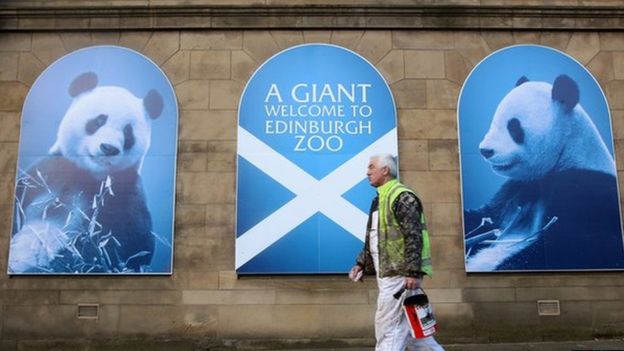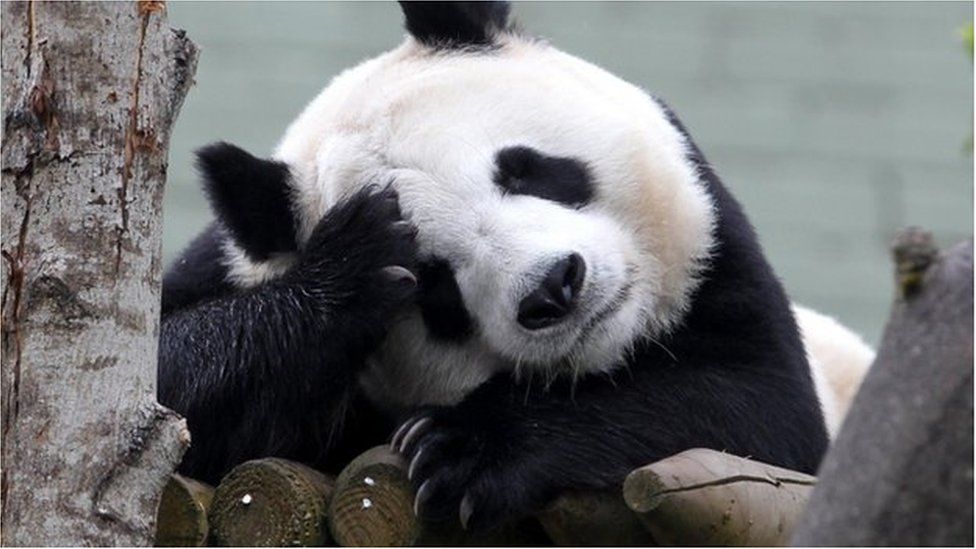
They arrived like rock stars 12 years ago and like any modern celebrity couple, their love life has been the source of endless speculation ever since.
But now the UK’s only giant pandas are returning to China without having any offspring, despite eight attempts at artificial insemination.
Tian Tian and Yang Guang – also known as Sweetie and Sunshine – were treated like VIPs (Very Important Pandas?) when they arrived in Edinburgh on 4 December 2011.
They flew in from south west China in their own specially-chartered cargo plane – a 5,000 mile journey by Panda Express.
Back then it had been 17 years since there was last a giant panda in a British zoo and from the moment their plane touched down at Edinburgh airport there was enormous public interest.
The loan arrangement for the pandas had taken five years to negotiate, with Edinburgh Zoo agreeing to pay the Chinese an annual fee of one million dollars (currently about £790,000).
It was also stipulated that any cub or cubs born in Edinburgh would be sent back to China when they were two years old.
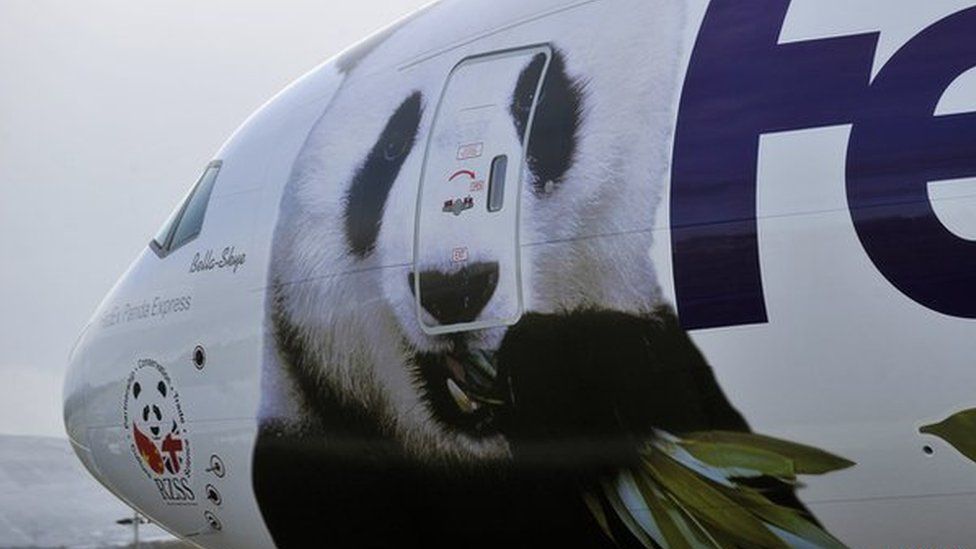
Some thought the huge loan fee was a risk, since other zoos in Australia and North America had not recouped their costs.
And conversely, there were critics who claimed the pandas had been brought to Scotland less for conservation reasons than in the hope of making money.
One of those was animal activist Yvonne Taylor who said the pandas were like rock stars in that “wherever they go, they draw the crowds”.
But, she said, it was worth remembering there had never been any successful reintroduction of pandas born in captivity back to the wild.
The man in charge of Edinburgh’s pandas when they arrived, Iain Valentine, countered by saying that working with the animals in captivity inspired investment in the natural world.
On their arrival, the pandas were instant celebrities and Edinburgh Zoo was transformed with banners and merchandise.
An old gorilla enclosure was turned, at a cost of £250,000, into a forest residence for Tian Tian and Yang Guang.
Their every need was catered for, with their favourite bamboo being supplied from the Netherlands.
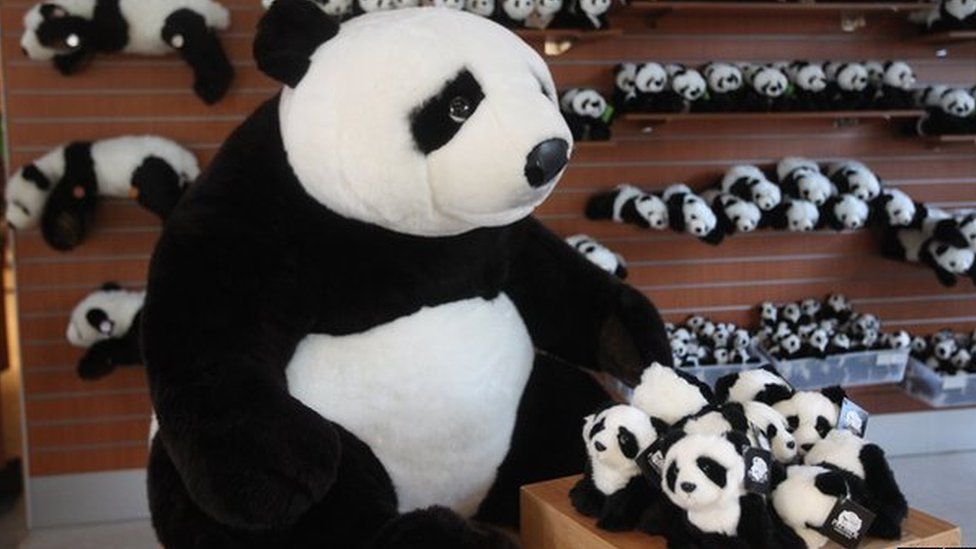
In 1994 the last panda to live in Britain – London Zoo’s Ming Ming – was sent back to China early after attempts to mate her with Bao Bao, a male loaned from Berlin Zoo, ended in savage and terrible fights.
But Edinburgh’s two giant pandas seemed to settle in well in their separate dens and the zoo decided that given the chance, they might breed.
Both, at eight years old, were mature young adults and both had had cubs before, although not with each other.
The tricky part is that female giant pandas have a breeding window of just 36 hours once a year.
In the wild, they may take several mates but the panda team in Edinburgh wanted to see if Yang Guang would be successful with Tian Tian on his own.
In early April 2012, the big day came.
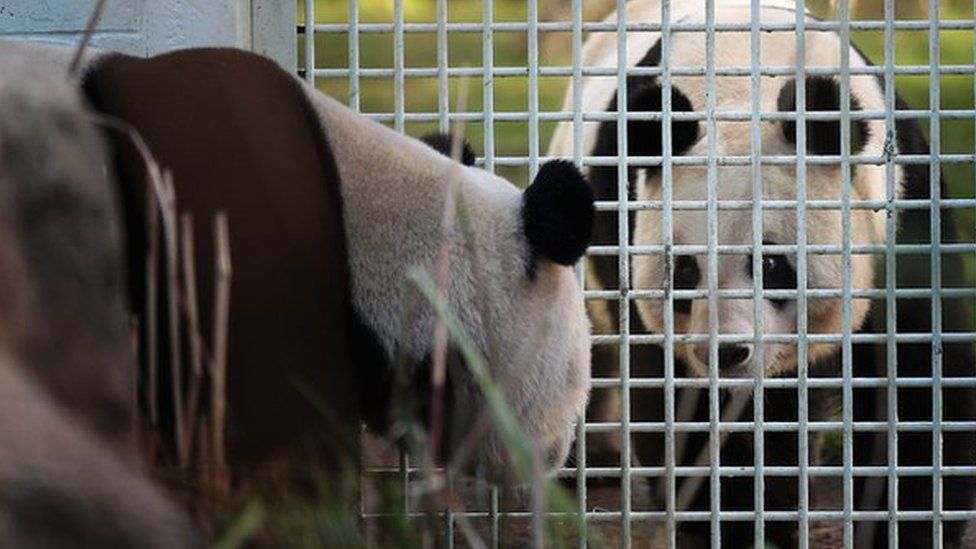
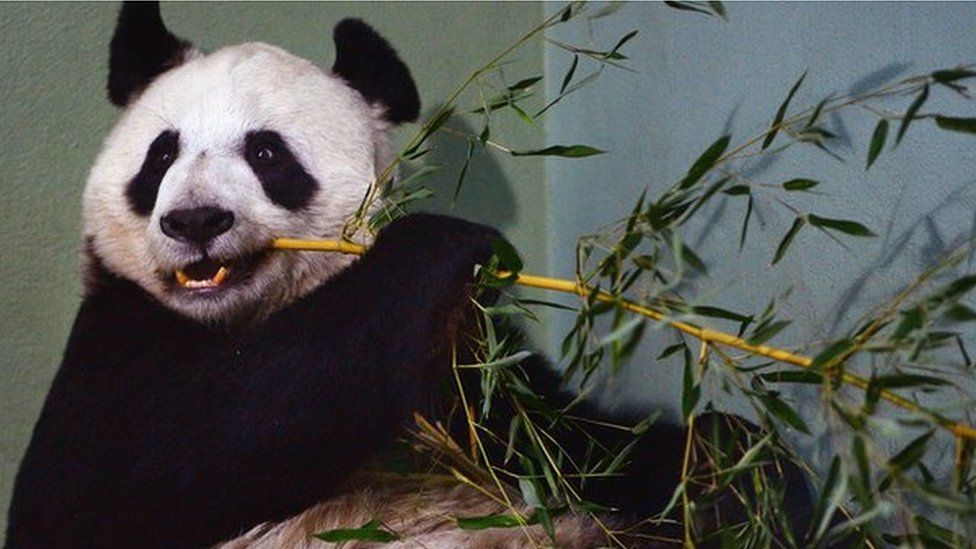
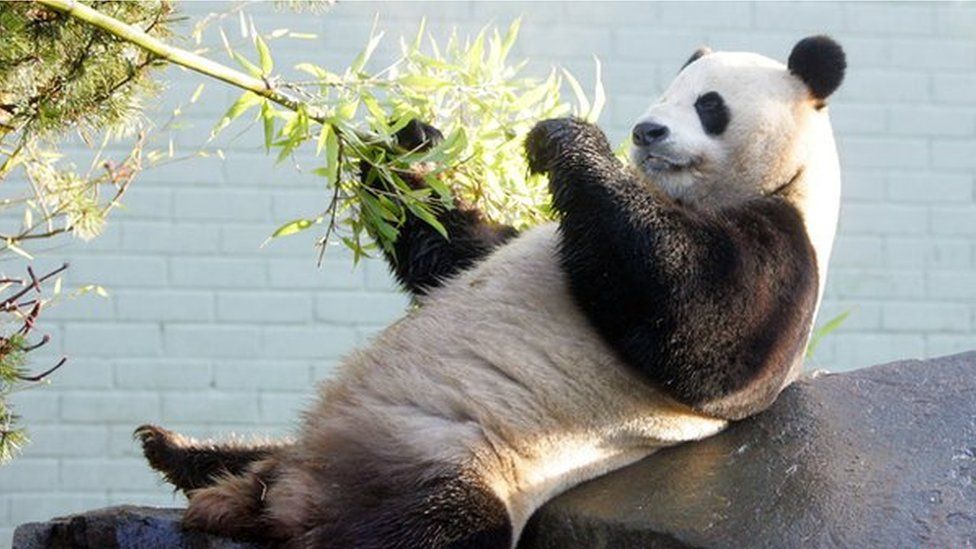
Tian Tian had been calling out to Yang Guang.
He had been bulking up, building his strength by eating extraordinary amounts of bamboo.
He was even doing handstands to leave his scent all over the enclosure.
A Chinese panda expert judged the moment was right and the ‘love tunnel’ gate between the two cages was opened.
It was much riskier than most first meetings. Sometimes giant pandas will attack each other. They didn’t.
They played, wrestled, made a lot of noise and Tian Tian got a little edgy.
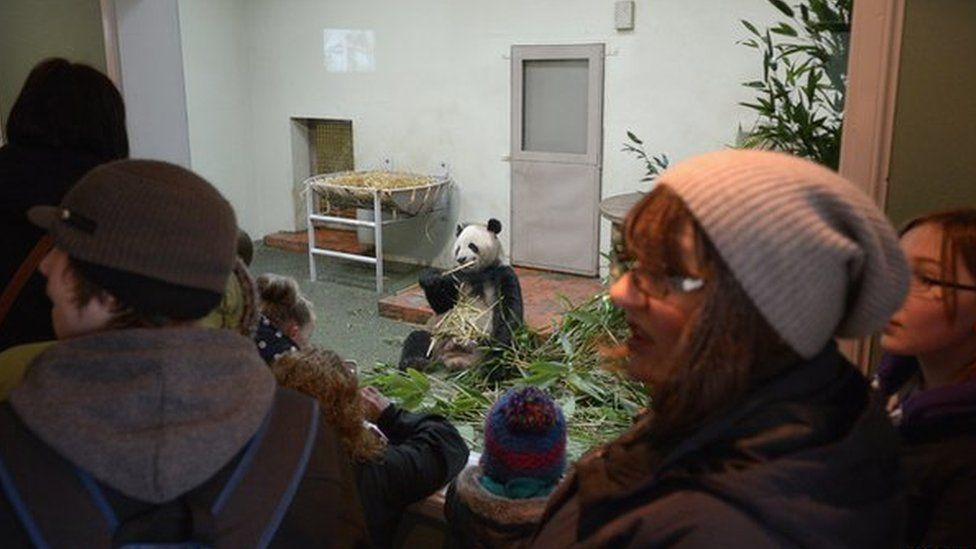
They were separated and put together again.
They tried to mate several times but Tian Tian’s tail got in the way. The keepers attempted to move it with a long pole but the two pandas failed to get together and the moment passed for another year.
So in the spring of 2013, Edinburgh’s giant panda team moved to a twin-track strategy.
They would give their giant pandas the chance to mate naturally but they would also use artificial insemination, with samples taken both from Yang Guang and from Bao Bao, the German panda whose sperm had been frozen before he died.
Once again, Tian Tian and Yang Guang did not mate when they were put together, but artificial insemination was successful. Unfortunately, Tian Tian’s pregnancy didn’t go full term.
Tian Tian became pregnant again in 2014 but the outcome was the same.
In 2015 zookeepers said they believed the panda had “reabsorbed” her pregnancy in late term.
In total, there have been eight unsuccessful attempts at artificial insemination, the latest one in 2021.
Animal rights campaigners have accused the zoo of being more focused on making money than the pandas’ welfare.
The animal rights group Peta said: “Pandas are not breeding machines but individuals, and they should not be sexually assaulted to produce babies for human amusement and display.”
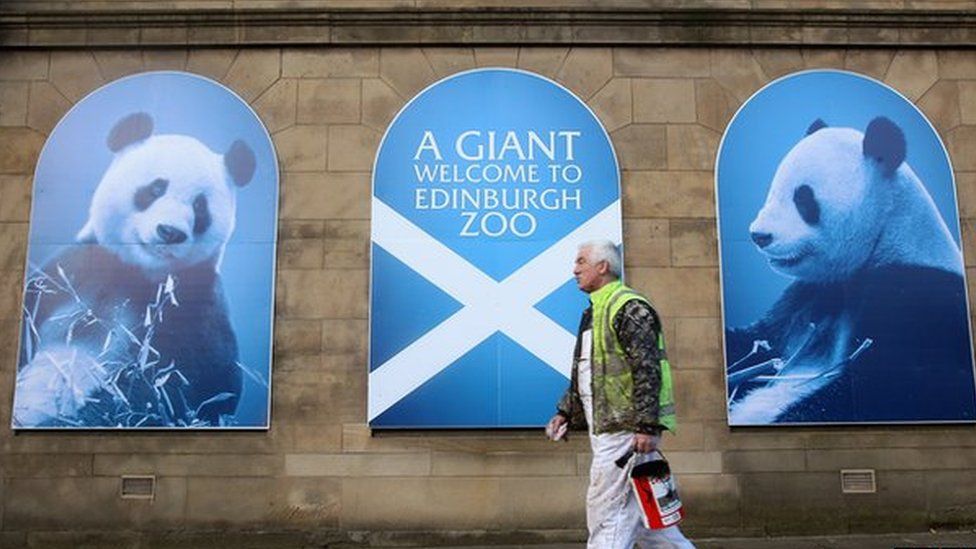
The zoo is a charity, which reported a £1.2m deficit before the pandas arrived.
During their first year, that was turned into a surplus of £2.4m. Another similar surplus was reported in 2013.
Visitor numbers have dropped since and the Covid pandemic caused major problems for the venue.
The original 10-year loan deal was extended by two years due to the pandemic but it was announced in the summer that they would be heading back to China in early December.
Visitor numbers and interest has risen again as people realised their days were numbered and Thursday is the final chance to see the pandas at Edinburgh Zoo.
In the end, the two ageing rock stars, both now 20, turned out to be less of a love story and more like noisy neighbours.
-
-
17 November
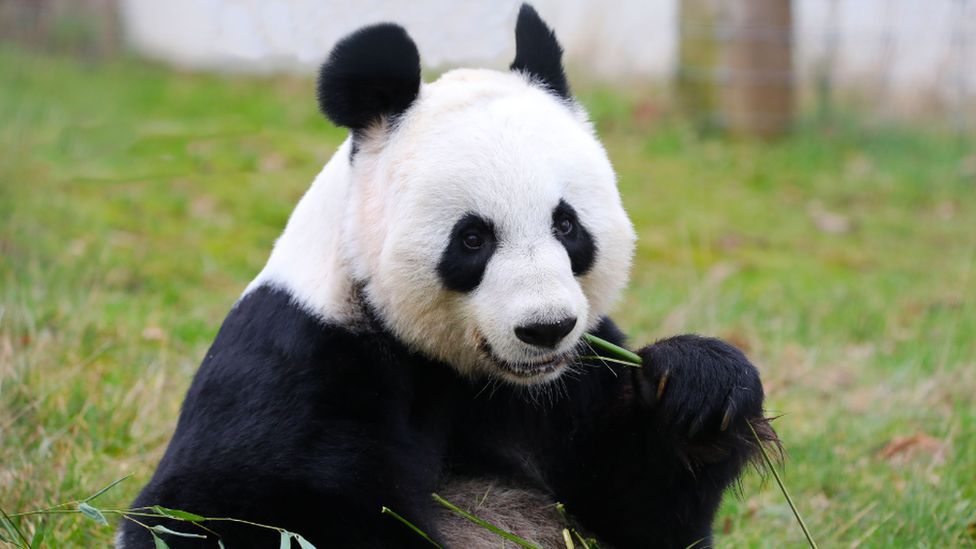
-

